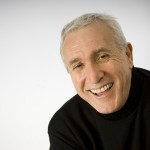
What is the most interesting interview you have read or heard recently? What aspect of the interview made it so interesting – was it the subject matter, the interviewee, or perhaps it was due to the questions asked by the interviewer?
“In my experience one of the most common causes for programs, products, and change initiatives that don’t work is that the wrong question has been asked.” – Tim Hurson
If you have ever spent time thinking about the questions you ask on a regular basis, either in your professional or personal life, you likely know the importance of asking “good questions.” In fact, formulating questions more effectively can help you gain insights faster and better take advantage of the opportunity of tapping into others’ knowledge.
Here are some tips for crafting better questions from a professional journalist:
- Keep your question brief and allow the respondent plenty of time to think and answer
- If you are looking for more than yes/no responses, it is better to start your questions with with “who,” “what,” “where,” “when,” “how,” or “why” (and NOT “would,” “should,” “is,” “are,” and “do you think”)
- Ask objectively, do not “lead” with what you believe the answer should be
- Listen closely to responses and interject to clarify a point or to steer the conversation back on topic
- Do not be afraid to ask a question that you think is too simple if you don’t know the answer to it – you can’t get smart on something if you don’t know the basics!
And if you’d like formal training from the people who know how to ask great questions that yield meaningful insights, our friends at CM2 could help. Their new Elicitation Training seminars can give you the tools you need to conduct more efficient and valuable conversations.,,,,
Related Post
Categories
Recent Articles

Expert Interviews: The Secret Weapon for Winning Product Strategy

Unlock Workforce Potential with Open Talent Networks | Boost Efficiency & Innovation

Has the world of consulting changed forever?

Internal talent marketplace

Experts on demand

